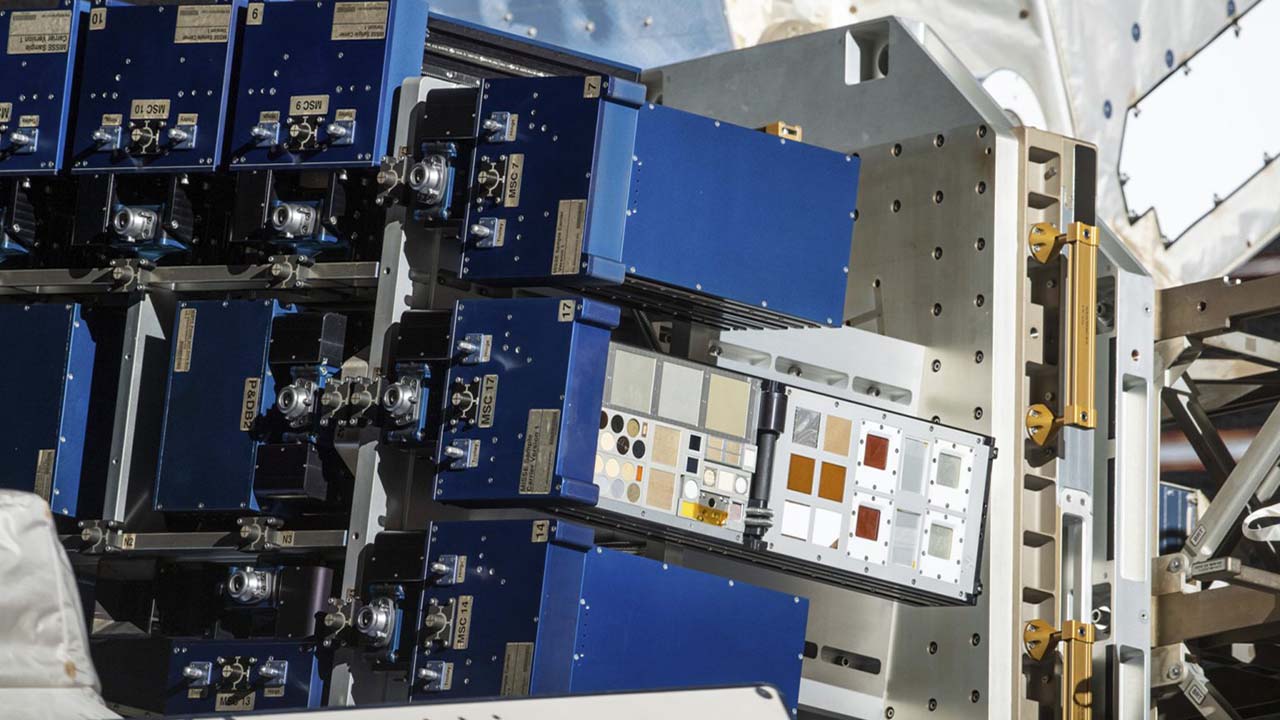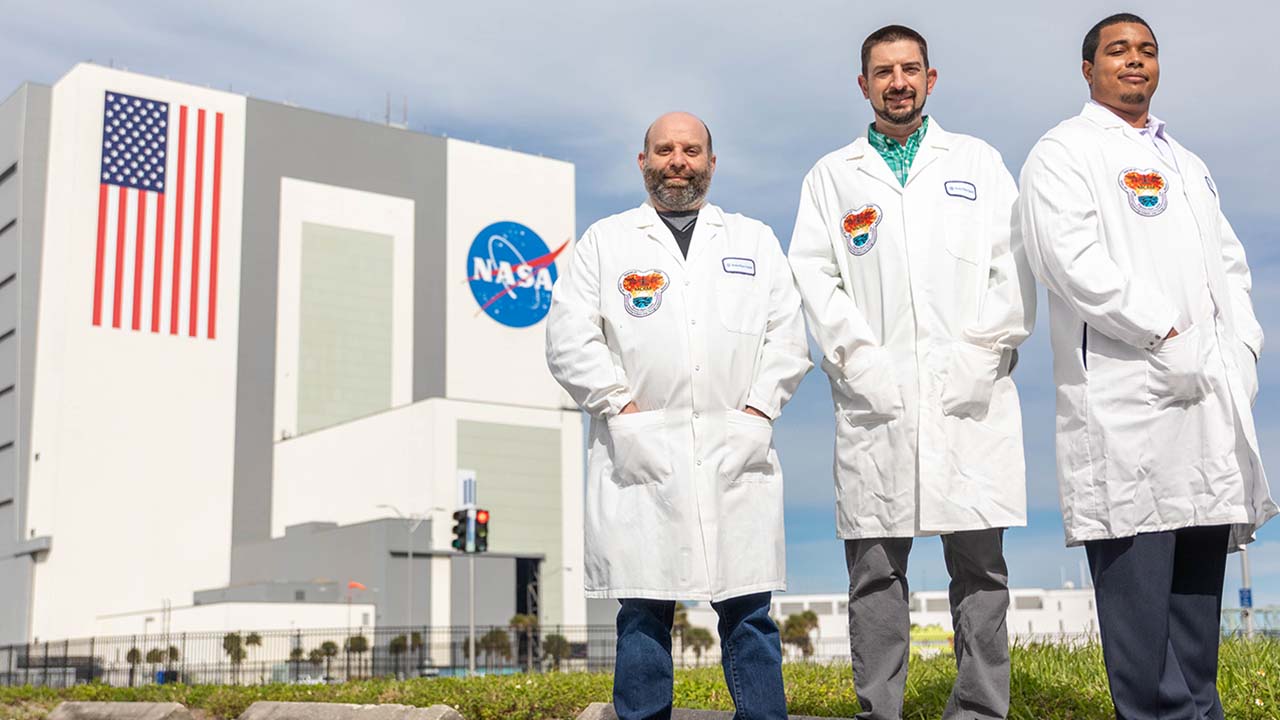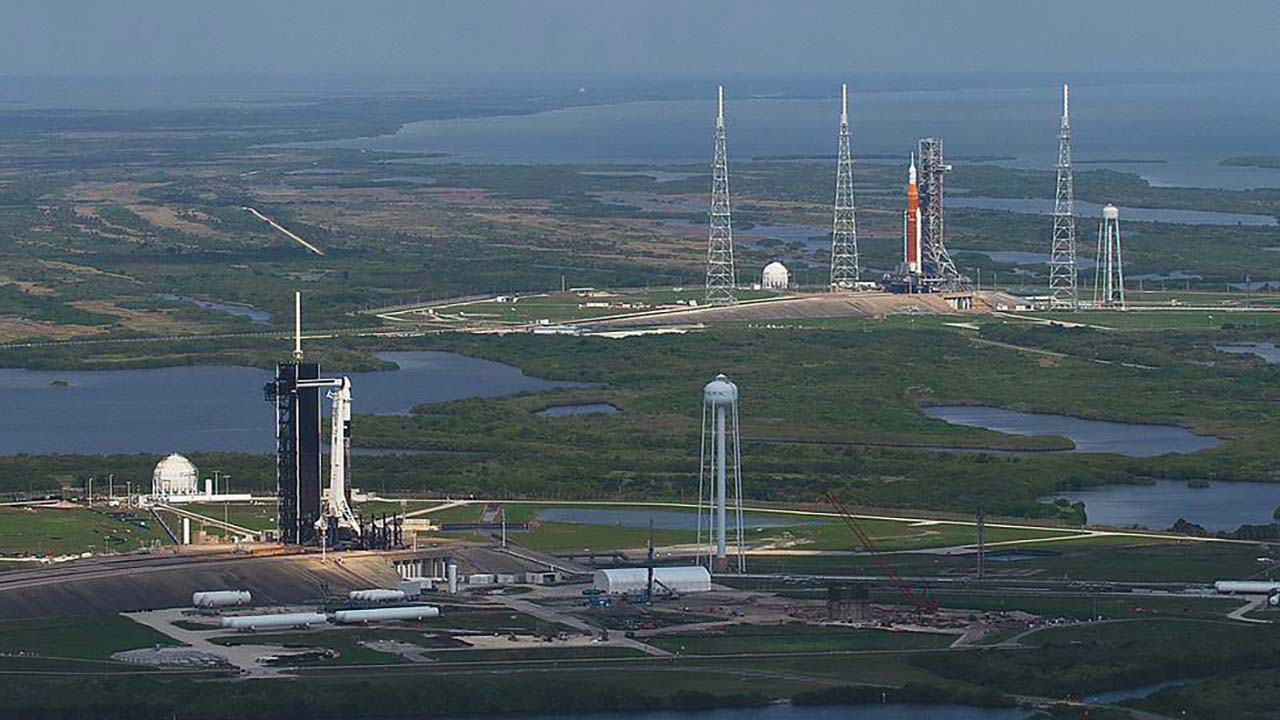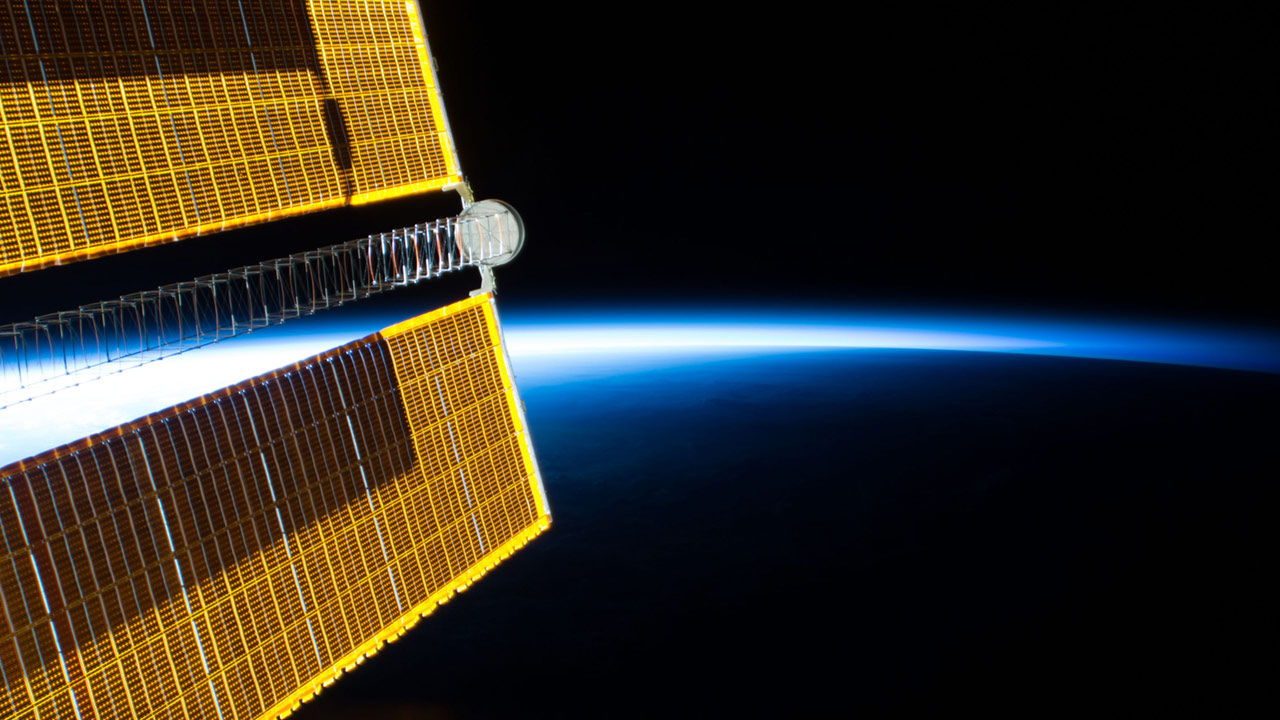KENNEDY SPACE CENTER (FL), March 13, 2023 – As 3D printed rockets, car parts, and even homes begin to hit the market on Earth, L3Harris Technologies aims to leverage the International Space Station (ISS) National Laboratory in its search for durable materials to 3D print satellite components. Before 3D printed materials can be used to build more sustainable and efficient parts for spacecraft, they must be tested to ensure they can withstand the harsh environment of low Earth orbit (LEO).
Among the payloads launching on SpaceX’s upcoming 27th Commercial Resupply Services (CRS) mission is a project to test an L3Harris-designed 3D printed radio frequency (RF) circuit and various 3D printed material samples. The project is a continuation of a 2021 experiment on the ISS that collected two months of data. This time, L3Harris will also test photonic material for a new technology called photonic integrated circuits. Used for satellite communications and similar to computer chips, these circuits utilize light instead of electrons in conventional electronics, similar to how light carries information in fiber optic cables for phone and internet data.
“We’re excited to test the 3D printed materials for six months and compare the new results with previous ISS experiments and ground tests,” said Arthur C. Paolella, senior scientist and technical fellow with L3Harris, an aerospace and defense industry leader. “The ability to 3D print materials for use in space opens up new possibilities for satellite design and construction while making spacecraft manufacturing more cost-effective and efficient.”

Various samples of 3D printed materials and a 3D printed RF antenna for radio communication during a previous experiment on the ISS.
Media Credit: Image courtesy of L3Harris
Eduardo Rojas, director of the Wireless Devices and Electromagnetics Laboratory at Embry Riddle Aeronautical University, and his students are assisting with the experiment. The investigation will utilize the MISSE Flight Facility (owned and operated by ISS National Lab Commercial Service Provider Aegis Aerospace) mounted to the exterior of the ISS. There, the material samples will experience the harshness of space in the ultimate test of their durability. The materials will be subjected to various conditions, including extreme temperatures and radiation, to validate their performance in the same environment where the satellites will operate.
“While we can test the durability of these materials on Earth against one or two of these factors at a time, on the ISS, we can test every potential hazard—and all at once,” Paolella said.
The results will be used to develop and refine the materials to incorporate them into satellite manufacturing, says Paolella. Photonic integrated circuits for optical communications between satellites and the ground could one day reduce the size, weight, and power of communications systems and increase the amount of data possible to transmit from satellite to satellite, he said. L3Harris continues to explore other potential space-based applications for 3D printed materials, including in-orbit manufacturing and repair.
This is just one of more than 15 ISS National Lab-sponsored payloads launching on SpaceX CRS-27 no earlier than March 14 at 8:30 p.m. EDT. Please visit our launch page to learn more about all ISS National Lab-sponsored research launching.
Download a high-resolution image for this release: SpaceX CRS-27: L3Harris
Media Contact:
Patrick O’Neill
904-806-0035
[email protected]
# # #
About the International Space Station (ISS) National Laboratory: The International Space Station (ISS) is a one-of-a-kind laboratory that enables research and technology development not possible on Earth. As a public service enterprise, the ISS National Lab allows researchers to leverage this multiuser facility to improve life on Earth, mature space-based business models, advance science literacy in the future workforce, and expand a sustainable and scalable market in low Earth orbit. Through this orbiting national laboratory, research resources on the ISS are available to support non-NASA science, technology, and education initiatives from U.S. government agencies, academic institutions, and the private sector. The Center for the Advancement of Science in Space, Inc. (CASIS) manages the ISS National Lab, under Cooperative Agreement with NASA, facilitating access to its permanent microgravity research environment, a powerful vantage point in low Earth orbit, and the extreme and varied conditions of space. To learn more about the ISS National Lab, visit www.ISSNationalLab.org.
# # #







